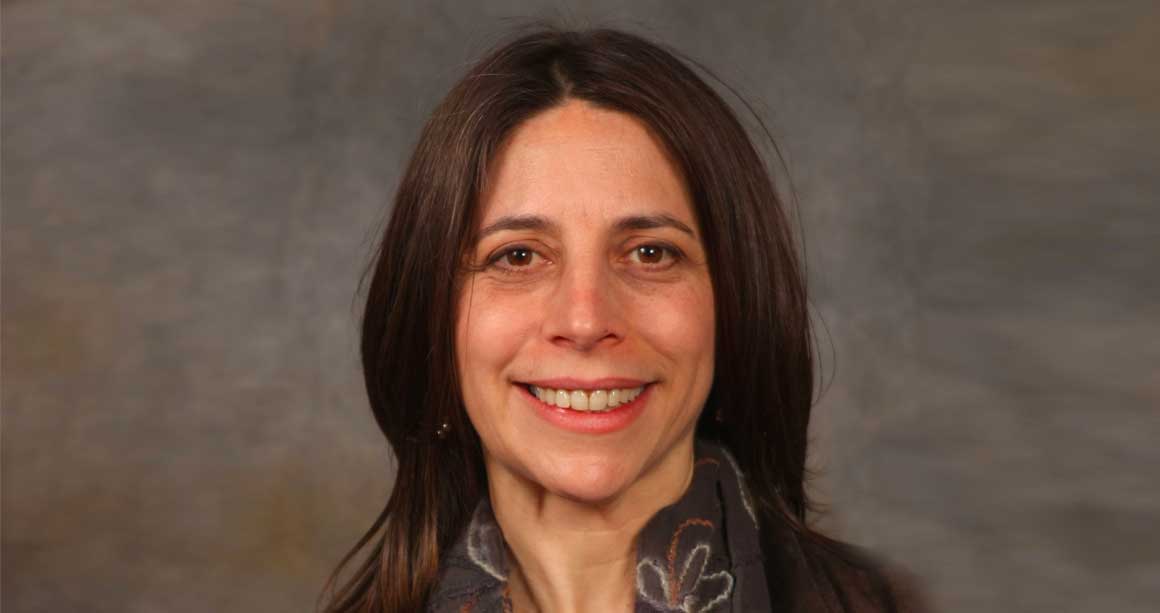Many competitive, lucrative jobs - including actuary, budget analyst, economist, financial market researcher and analyst, statistician and stockbroker – require strong mathematical skills.
Hofstra's Bachelor of Science in Mathematics with an actuarial science option, or BS in Mathematical Finance can be the ideal starting point for those mathematics majors interested in applying their skills to a career in business and industry. You can also pursue a general mathematics degree, or a more specialized program that focuses on Mathematics with Science Applications.
Our distinguished faculty members provide a thorough education in the mathematical disciplines essential to business. You will also have access to faculty and industry leaders in Hofstra's renowned Frank G. Zarb School of Business, whose real-world insights will prepare you for success in the corporate world.
Hofstra views mathematics as a collaborative venture, not a solitary pursuit. Every faculty member works to develop students' abilities - to not only think mathematically about problems, but to become fluent and precise in expressing mathematical concepts.
Career prospects for math majors vary, depending on the industry and your role. The U.S. Bureau of Labor Statistics projects much faster than average job growth in all math-related occupations. For actuaries, the national median annual income in 2017 was $101,560 and the field is expected to experience a job growth of 22% by 2026, according to federal data.
Students in our business-oriented mathematics programs receive a well-rounded educational experience, learning both essential pure math disciplines and foundational concepts in Actuarial Science or Finance. This balance makes you a valuable employee or a desirable student for competitive MBA and other advanced degree programs. In addition, all students complete a course in “Communicating Mathematics,” ensuring they are well-prepared to present mathematical information and research to peer audiences.
Curriculum
For business-oriented students, there are two types of math degrees::
- a BS in Mathematics with a concentration in actuarial science (the use of math and statistical models to assess risk)
- a BS in Mathematical Finance, which is designed for students who want to dive deeply into math and finance
Up-to-date information about required classes and more is available in the Hofstra Bulletin.
In addition to traditional math courses, students concentrating in actuarial science can expect to take classes including Applications of Probability to Actuarial Problems and Business Forecasting. Hofstra also offers courses that are approved by the Society of Actuaries that help you prepare for the rigorous exams required for professional licensure.
Those pursuing the BS in Mathematical Finance take calculus, linear algebra and statistics, supplemented with classes in economics and business classes offered by the Math Department and the Zarb School of Business including: Mathematics of Financial Derivatives, Introduction to Econometrics, and Introduction to Computer Concepts and Software Tools in Business.
You also can choose to dual major in mathematics and a specific aspect of business. Or, you might enroll in a dual-degree program to earn an undergraduate math degree and an MBA or an MS in Finance in five years – less time than if each degree was pursued separately. Hofstra also offers a minor in mathematics.
Internships
The department promotes field experience, which is key for employment and when applying to graduate school. Students seeking positions as actuaries or other positions in business and industry find that internships offer real-world experiences beyond the classroom. Examples of places where math students have held internships are Flushing Bank, Amerasia Bank, Northwell Health, PNC Bank, Bitcoin Center NYC, and Heritage Strategies LLC.

Those who plan to pursue advanced degrees in math often benefit from research experience, either working closely with our own faculty or traveling to REU (Research Experience for Undergraduates) programs at locales such as Missouri State, the College of William & Mary, Budapest, Hungary, and more. Recently, with faculty and institutional support, students traveled to academic conferences in Missouri, Colorado, Hawaii, Nebraska, California, and France.
When they are not in class, our students socialize in our department lounge and in the Math Tutoring Center. Many participate in the Actuarial Science Club and the Math Club, which plan off-campus
excursions to the movies, to the National Museum of Mathematics, and to meetings with industry leaders in New York City. Some students may be invited to join Pi Mu Epsilon, the mathematics honor society, which can open doors in both education and industry.
Math students are also exposed to a broad range of current research and new ideas through a busy seminar program. Faculty, students and guest lecturers discuss varied topics like: How Aliens Do Math, How Math Theory Can Help Break Up Terror Cells, Confessions of a Sequence Addict, The Many Lives of Lattice Theory, and What Mathematics Can Tell Us About Cancer.
Our students also are encouraged to take part in local and national mathematics competitions. These range from the Department's Problem of the Month competition and annual SCUDEM (Student Competition Using Differential Equations Modeling) to Central Washington University's cipher-breaking Kryptos competition, and the William Lowell Putnam Mathematical Competition, the preeminent mathematics competition for undergraduate college students in the United States and Canada.
The Outlook
Recipients of undergraduate mathematics degrees from Hofstra move quickly into employment or graduate school after graduation.
Our recent graduates with degrees in math and mathematical finance have found jobs with such organization as Zurich North America, Esurance, American Advisors Group, Inc., Zebra Technology and Nature's Bounty Co.
Other undergraduate degree recipients are pursuing advanced degrees at such institutions as Columbia University, Cornell University, University of Pennsylvania, Harvard University and Yale University.
In a survey of recent graduates:
100%
job, grad school or both
92%
accepted a job within six months of graduation
$42K
median salary*
Meet Dr. Silvia Silberger
Dr. Silberger, associate professor of mathematics, believes less is more - when it comes to cars. An avid environmentalist, she founded Hofstra’s annual Bike-to-Work parade, an event aimed at promoting bike-friendly streets and more convenient public transportation options. Here, she talks about what inspired her to launch the event, and to start a group called Car-Less Long Island.


